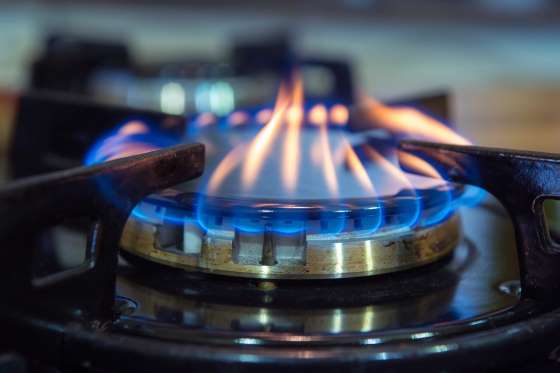IF YOU SMELL: GAS
Natural gas is odorless, so in order to make it detectable the chemical mercaptan is added, which creates that classic ‘rotten egg’ odor. If you smell gas you could be in danger of a gas leak, which could cause fire or an explosion. Leave the house immediately and call the gas company on your mobile phone or a neighbor’s phone, says Frank Lesh, executive director of the American Society of Home Inspectors. Avoid using a landline phone in the house, turning lights or appliances on or off, or using a car, all of which could create sparks.

IF YOU SMELL: SOMETHING MUSTY
A musty, pungent odor could indicate a sink leak or broken pipe that has given rise to mold, which loves to grow in dark, damp spots. ‘For mold we’re really concerned about people with allergies and asthma,’ says David Dyjack, DrPH, CIH, executive director of the National Environmental Health Association. ‘Both conditions can be exacerbated by mold exposure.’ If you see mold, disinfect non-porous surfaces like tile with a 10 percent bleach/water solution and let sit for 10 minutes while ventilating, Dyjack adds. For porous surfaces like dry wall, it’s best to replace. If you can’t see the mold it may be in the walls, in which case call your local health department or a home inspector (the American Society of Home Inspectors website provides listings based on area code), to find the problem.

IF YOU SMELL: A GROSS BATHROOM ODOR
If your home smells like a waste treatment plant, you could have a leak of sewer gas, which contains toxic and potentially explosive components such as hydrogen sulfide (which could cause problems from eye irritation to unconsciousness) and methane (which can deplete oxygen leading to asphyxiation). One cause could be a bathroom that isn’t used often. The pipes under a shower or sink include a U-shaped trap, which holds a small amount of water that blocks sewer gas from leaking back into the house. If a bathroom isn’t used, this water could evaporate, allowing odors through. To fix the problem, simply pour a cup of water into the bathroom drain, says Lesh. For extra effectiveness, add a teaspoon of vegetable oil to stop the water from evaporating. If, however, you can’t find the source of the problem, the issue could be that a vent pipe, which routes sewer gas up and out through your roof, is broken or clogged. In this case call a home inspector or plumber to investigate.

IF YOU SMELL: SMOKE, KIND OF
A strong smoke smell could be cause for panic, but even a small, occasional whiff could mean a big problem. ‘If you only smell it once in awhile, like when using a particular light or appliance, it could be electrical smoke behind a wall or in a ceiling light fixture—and that could be very dangerous,’ says Lesh. Call your fire department or an electrician right away.

IF YOU SMELL: DIRTY DOG
If you notice a raunchy, wild smell like a dog in need of a bath—but you don’t have a dog—you could have rodents, raccoons, or squirrels in your attic. These squatters will use your rafters as a bathroom, which is especially dangerous with raccoons, whose feces could contain roundworm eggs that pose a risk to people, according to the CDC. If you find feces in your attic, ‘don’t be a hero and just try to pick them up,’ warns Lesh, who suggests calling a pest control expert to ensure safe removal.

IF YOU SMELL: OLD CIGARETTES
We’ve all heard of secondhand smoke, but there are newly emerging concerns about thirdhand smoke, which is the smell of old smoke that lingers, such as in a hotel room or vacation rental previously occupied by smokers. ‘With thirdhand smoke, the particles associated with the combustion of tobacco have settled onto surfaces, including counters, table tops and bed linen, and there are at least 11 carcinogens associated with some of that dust,’ says Dyjack. ‘We don’t know how significant thirdhand smoke exposure is, but kids are at greatest risk by rolling on the carpet, touching tables, then sticking their fingers in their mouths.’ Dyjack recommends thoroughly cleaning places where smokers have been. Try one of these simple deodorizer ideas to make your home smell fresh.

IF YOU SMELL: THAT GREAT ‘NEW’ SMELL
If you’re giving your walls a facelift, be on guard for the ‘fresh’ smell of paint, which contains volatile organic compounds (VOCs). Because VOCs can cause health problems that range from throat irritation and headache to central nervous system damage and cancer, according to the Environmental Protection Agency, buy low- or no-VOC paint brands and ventilate during and after painting. VOCs are also found in insecticides, which Dyjack predicts may be in wide use due to fears of the Zika-carrying Aedes mosquito. Instead of coating your home with spray, Dyjack says, carefully follow the directions on the can. Or better yet, eliminate the things that attract the mosquito in the first place by removing any small, quarter-sized pools of water in your home and yard.












